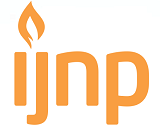Nursing Students’ Perception on Tutor Performance and Students’ Critical Thinking in PBL Online
DOI:
https://doi.org/10.18196/ijnp.v5i2.13349Keywords:
Critical Thinking, Nursing Students, Problem Based Learning, Tutor PerformanceAbstract
Background: The COVID-19 pandemic has influenced health education in many countries, including nursing education that moves to online learning. It has affected the tutor's performance and students' critical thinking skills, especially in online PBL tutorials. Tutor and nursing students have to re-adapt to a new online meeting atmosphere that previously had face-to-face meetings. There was no previous investigation into the effect of online PBL on tutor performance and nursing students’ critical thinking skills in UMY.
Purpose: This study aims to determine students’ perceptions of tutor performance in online problem-based learning tutorials and the critical thinking skills of nursing students in UMY.
Methods: This research is a cross-sectional quantitative study. The sample included 91 second-year nursing students, using the total sampling technique. The researchers used two questionnaires with closed questions about the tutor's performance in PBL tutorials and the critical thinking skills. Data were analyzed by univariate analysis.
Result: The majority of respondents were female (83.5%) and 19-20 years old (91.2%). The study results showed that the tutor's performance on the online PBL tutorial was good (95.6%), while the critical thinking ability was poor (54.9%).
Conclusion: This study showed that students still needed to adjust and adapt maximally to online problem-based learning tutorials and needed support and motivation to improve the quality of learning.
References
Addae, J. I., Sahu, P., & Sa, B. (2017). The relationship between the monitored performance of tutors and students at PBL tutorials and the marked hypotheses generated by students in a hybrid curriculum. Medical Education Online, 22(1), 1–5. https://doi.org/10.1080/10872981.2017.1270626
Ahmad, L. I. (2017). Konsep Penilaian Kinerja Guru Dan Faktor Yang Mempengaruhinya. Idarah: Jurnal Manajemen Pendidikan, 1(1), 133–142. https://doi.org/10.24252/idaarah.v1i1.4133
Ashari, N. W., & Salwah, S. (2017). Problem Based Learning (PBL) dalam Meningkatkan Kecakapan Pembuktian Matematis Mahasiswa Calon Guru. JMPM: Jurnal Matematika Dan Pendidikan Matematika, 2(2), 100. https://doi.org/10.26594/jmpm.v2i2.891
Boso, C. M., van der Merwe, A. S., & Gross, J. (2020). Critical thinking skills of nursing students: Observations of classroom instructional activities. Nursing Open, 7(2), 581–588. https://doi.org/10.1002/nop2.426
Dewart, G., Corcoran, L., Thirsk, L., & Petrovic, K. (2020). Nursing education in a pandemic: Academic challenges in response to COVID-19. Nurse Education Today, 92, 104471. https://doi.org/10.1016/j.nedt.2020.104471
Directorate General of Higher Education (2014). Capaian Pembelajaran Lulusan Program Studi.
Edelbring, S., Alehagen, S., Mörelius, E., Johansson, A., & Rytterström, P. (2020). Should the PBL tutor be present? A cross-sectional study of group effectiveness in synchronous and asynchronous settings. BMC Medical Education, 20(1), 1–6. https://doi.org/10.1186/s12909-020-02018-3
Endriani, R., & Nazriati, E. (2009). Pendapat mahasiswa terhadap implementasi kurikulum berbasis kompetensi (KBK) dengan problem based learning (PBL) di Fakultas Kedokteran Universitas Riau Pekanbaru. Jik, 3(1), 10. http://ejournal.unri.ac.id/index.php/JIK/article/view/671
Foo, C. chung, Cheung, B., & Chu, K. man. (2021). A comparative study regarding distance learning and the conventional face-to-face approach conducted problem-based learning tutorial during the COVID-19 pandemic. BMC Medical Education, 21(1), 1–6. https://doi.org/10.1186/s12909-021-02575-1
Grasl, M. C., Kremser, K., Breckwoldt, J., & Gleiss, A. (2020). Does the tutors’ academic background influence the learning objectives in problem-based learning? GMS Journal for Medical Education, 37(1), 1–17. https://doi.org/10.3205/zma001301
Hakami, Z. (2021). Comparison between virtual and traditional learning methods for orthodontic knowledge and skills in dental students: A quasi-experimental study. Healthcare (Switzerland), 9(9). https://doi.org/10.3390/healthcare9091092
Jiménez-Gómez, M. A., Cárdenas-Becerril, L., Velásquez-Oyola, M. B., Carrillo-Pineda, M., & Barón-Díaz, L. Y. (2019). Reflective and critical thinking in nursing curriculum. Revista Latino-Americana de Enfermagem, 27. https://doi.org/10.1590/1518-8345.2861.3173
Langegård, U., Kiani, K., Nielsen, S. J., & Svensson, P. A. (2021). Nursing students’ experiences of a pedagogical transition from campus learning to distance learning using digital tools. BMC Nursing, 20(1), 1–10. https://doi.org/10.1186/s12912-021-00542-1
Li, W., Gillies, R., He, M., Wu, C., Liu, S., Gong, Z., & Sun, H. (2021). Barriers and facilitators to online medical and nursing education during the COVID-19 pandemic: perspectives from international students from low- and middle-income countries and their teaching staff. Human Resources for Health, 19(1), 1–14. https://doi.org/10.1186/s12960-021-00609-9
Muflih, S., Abuhammad, S., Al-Azzam, S., Alzoubi, K. H., Muflih, M., & Karasneh, R. (2021). Online learning for undergraduate health professional education during COVID-19: Jordanian medical students’ attitudes and perceptions. Heliyon, 7(9), e08031. https://doi.org/10.1016/j.heliyon.2021.e08031
Pangondian R. A., Santosa, P. I., & Nugroho, E. (2019). Faktor - Faktor Yang Mempengaruhi Kesuksesan Pembelajaran Daring Dalam Revolusi Industri 4.0. Seminar Nasional Teknologi Komputer & Sains (SAINTEKS), 1(1), 56–60. https://www.prosiding.seminar-id.com/index.php/sainteks/article/view/122
Prayekti, P., & Nurdin, G. (2011). Faktor-Faktor Yang Mempengaruhi Kualitas Tutorial Program S1 PGSD Fakultas Keguruan dan Ilmu Pendidikan Universitas Terbuka. Jurnal Pendidikan Dan Kebudayaan, 17(3), 316. https://doi.org/10.24832/jpnk.v17i3.29
Salari M., Roozbehi A., Zarifi A., Tarmizi R A. (2018). Pure PBL, Hybrid PBL and Lecturing: which one is more effective in developing cognitive skills of undergraduate students in pediatric nursing course?. BMC Medical Education, 18(195), 1-15. https://doi.org/10.1186/s12909-018-1305-0
Singh, H. K., Joshi, A., Malepati, R. N., Najeeb, S., Balakrishna, P., Pannerselvam, N. K., Singh, Y. K., & Ganne, P. (2021). A survey of E-learning methods in nursing and medical education during COVID-19 pandemic in India. Nurse Education Today, 99(January), 104796. https://doi.org/10.1016/j.nedt.2021.104796
Suparni, S. (2020). Upaya Meningkatkan Kemampuan Berpikir Kritis Mahasiswa Menggunakan Bahan Ajar Berbasis Integrasi Interkoneksi. Jurnal Derivat: Jurnal Matematika Dan Pendidikan Matematika, 3(2), 40–58. https://doi.org/10.31316/j.derivat.v3i2.716
Svensson, J., Axén, A., Andersson, E. K., & Hjelm, M. (2021). Nursing students’ experiences of what influences achievement of learning outcomes in a problem-based learning context: A qualitative descriptive study. Nursing Open, 8(4), 1863–1869. https://doi.org/10.1002/nop2.842
Downloads
Published
Issue
Section
License
License
Articles published in the IJNP (Indonesian Journal of Nursing Practices) are licensed under a Attribution 4.0 International (CC BY 4.0) license. You are free to:
- Share — copy and redistribute the material in any medium or format.
- Adapt — remix, transform, and build upon the material for any purpose, even commercially.
This license is acceptable for Free Cultural Works. The licensor cannot revoke these freedoms as long as you follow the license terms. Under the following terms:
Attribution — You must give appropriate credit, provide a link to the license, and indicate if changes were made. You may do so in any reasonable manner, but not in any way that suggests the licensor endorses you or your use.
- No additional restrictions — You may not apply legal terms or technological measures that legally restrict others from doing anything the license permits.
Copyright
Authors who publish with IJNP (Indonesian Journal of Nursing Practices) agree to the following terms:
- Authors retain copyright and grant IJNP (Indonesian Journal of Nursing Practices) the right of first publication with the work simultaneously licensed under an Attribution 4.0 International (CC BY 4.0) that allows others to remix, adapt and build upon the work with an acknowledgment of the work's authorship and of the initial publication in IJNP (Indonesian Journal of Nursing Practices).
- Authors are permitted to copy and redistribute the journal's published version of the work (e.g., post it to an institutional repository or publish it in a book), with an acknowledgment of its initial publication in IJNP (Indonesian Journal of Nursing Practices).














